#les extras
Explore tagged Tumblr posts
Text





stupid idea ends in stupid doodles
Extra:

#siempre es gracioso como ryuuji me sale para el ogt hasta que le agarro la mano#SFMBE#solo hice esto por el extra#bonrin#勝燐#sugurin#bonrin au#rin okumura#ryuuji suguro#blue exorcist#ao no exorcist#aoex
943 notes
·
View notes
Text



POV: It's June 6th
im pretty sure enjolras and grantaire were confused about how June 6th went down too (I mean suddenly they are ok again LMAO)
(rant in tags! again)
#les mis#enjolras#grantaire#enjoltaire#while we have eR standing side by side I want to share the few ideas I had while designing them#I wanted to give them opposite features for the visual storytelling: like enjolras having upward slanting eyes (alert#while Grantaire has downward slanting eyes (more laid-back). they also have similar hair length. Enjolras' hair is curly and looks cared-fo#(his hair just looks that way) while Grantaire's hair is straight#unkempt and greasy to add an extra layer of visual characterisation :D#enjolras' fit is referenced from that One illustration#haterart
304 notes
·
View notes
Text
antoine + étoiles insane moments for ur consideration :] @etoilesbienne @icockeatpanda @jahanmp4
eng transcript below:
[Video Transcript:
(First clip plays.)
Antoine: Look at what’s written in the heart, dude.
Etoiles: Holy shit, it’s you and me, dude!
Antoine: Oh yeah, A + E, dude
(overlapping) Etoiles: Antoine and Etoiles. Dude, holy shiiiit
Etoiles: Hey all that is destiny, dude
Antoine: I’m the one who did it in the hopes of stumbling across it on Geoguessr one day
Etoiles: Fuck, and after all these years you’ve finally realised your objective
Antoine: And yeah, dude….
Etoiles: peepoShy, as we say
(Second clip plays.)
Etoiles: Where are you, Antoine?
Antoine: I’m on— I’m on the blue level of the TDM (Tour de Merde)
Etoiles: Where are you, darling? I’m coming
Antoine: The blue level of the TDM
Florence: No but he’s horny, Rayou, tonight
Bagz: But Rayou— he arrived— he arrived (to the stream) saying, “I’m exhausted’, and he’s really in shape!
Antoine: He just wants to fuck, Rayou, tonight. He wants to fuck so badly tonight
Etoiles: But I said ‘darling’!
(overlapping) Bagz: In ‘Just Fucking’ (as a Twitch stream category)
Etoiles: No but I hate you all, bro
(Third clip plays.)
Antoine: I want to vape but I can’t
Etoiles: Vape my ass, dude
Antoine: Wow, what the fuck? What—
(Fourth clip plays.)
Etoiles: Well I don’t know what my favourite party is, is it the one where we played the capitals game? Or—
Antoine: Or the one where I sucked you off? Oh, no, sorry. No, you were saying? Yeah
Etoiles: That one— that one was crazy
(overlapping) Antoine: Sorry, my bad
(Fifth clip plays.)
Etoiles: Antoine I just looked at the camera, you’re incredibly handsome, dude
Antoine: Really?
Etoiles: Yeah. You have a cool look about you
Zerator: You mean, as opposed to normal?
Etoiles: Yeah, because usually you’re disgusting but here, honestly… I find you very fuckable tonight
Antoine: Well, thanks so much dude
(Sixth clip plays.)
Etoiles: Me, I’ve never cried. The only time I’ve had water on my face is when I’ve showered
Antoine: When I performed a facial on you too, no?
Florence: Oh nooooo. No but I respect it, you guys do what you want
Etoiles: Actually it’s not water it’s sperm
Antoine: In sperm there’s water, dude
(Cuts to a later portion of the same stream.)
Etoiles: Y’know you’re only gross with me, with your other friends you don’t make jokes like that
Antoine: That’s true. I don’t know why I’m like this with you. Maybe I should be asking myself questions, bro. I don’t know!
end Video Transcript.]
#etoiles#antoine daniel#étoiles#jay clips#couldn’t quite match the power of ‘vapote-moi le cul’ in the eng translation my bad#also ‘chouchou’ has such a particular energy idk if darling matches it quite well…. ah well#probably a p1 . i meant this to be longer but i started this aaaages ago and any extra clips i had in mind for use i have now forgotten#but as i get back into watching them more i’m sure i’ll find enough content for a p2 lmao#like a month ago they and some others had an absolutely insane bit about sausages and sperm so . yknow . it’s still going strong#i probably shouldn’t main tag this qsmp . but it would be funny#these clips were taken from etoiles’ main channel antoine’s best of channel and both of their vods channels . hmu if u want the exact video#i will attempt to find em again#OH one was taken from a clips channel i think i would also have to go looking 4 that#insuline & nicotine
269 notes
·
View notes
Text


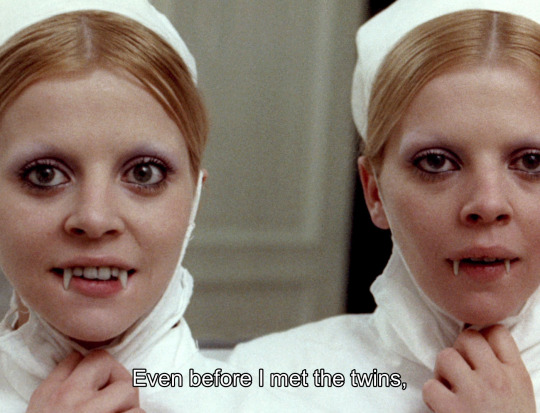

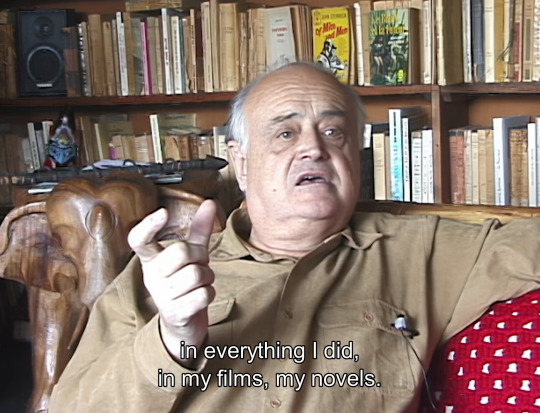







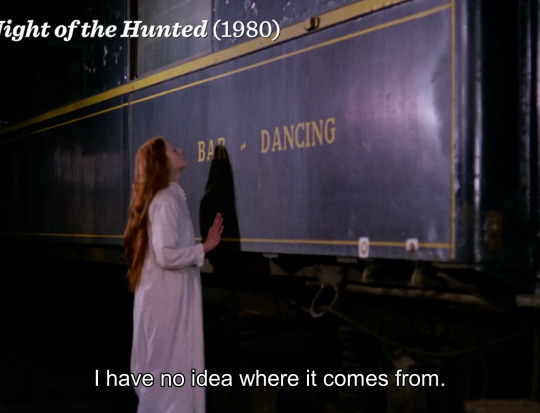
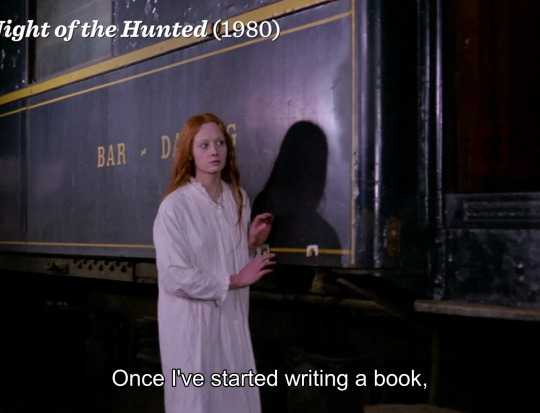
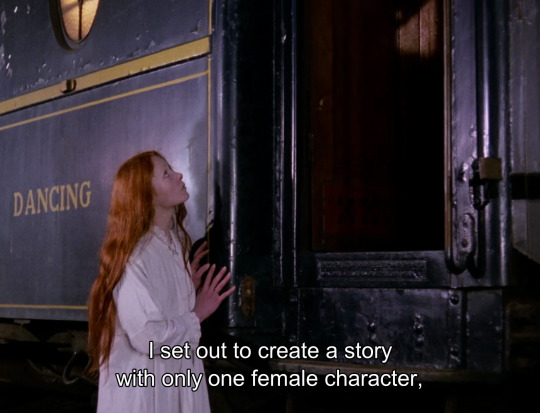

Archival interview with Jean Rollin, from Infinite Dreams (2023)
#jean rollin#interview#infinite dreams#2020s#2023#caps#subtitles#2000s#2002#les deux orphelines vampires extras#documentary
846 notes
·
View notes
Text
Les Mis French History Timeline: all the context you need to know to understand Les Mis
Here is a simple timeline of French history as it relates to events in Les Miserables, and to the context of Les Mis's publication! A post like this would’ve really helped me four years ago, when I knew very little about 1830s France or the goals of Les Amis, so I’m making it now that I have the information to share! ^_^
This post will be split into 4 sections: a quick overview of important terms, the history before the novel that’s important to the character's backstories, the history during the novel, and then the history relevant to the 1848-onward circumstances of Hugo’s life and the novel’s publication.
Part 1: Overview
The novel takes place in the aftermath of the Battle of Waterloo, during a period called the Restoration.
The ancient monarchy was overthrown during the French Revolution. After a series of political struggles the revolutionary government was eventually replaced by an empire under Napoleon. Then Napoleon was defeated and sent into exile— but then he briefly came back and seized power for one hundred days—! and then he was defeated yet again for good at the battle of Waterloo in 1815.
After all that political turmoil, kings have been "restored" to the throne of France. The novel begins right as this Restoration begins.
The major political parties important to generally understanding Les Mis (Wildly Oversimplified) are Republicans, Liberals, Bonapartists, and Royalists. It’s worth noting that all these ‘party terms’ changed in meaning/goals over time depending on which type of government was in power. In general though, and just for the sake of reading Les Mis:
Republicans want a Republic, where people have power rather than monarchs and (in this context) elect their leaders democratically— they’re the very left wing progressive ones, and are heavily outcast/censored/policed. Les Amis are Republicans.
Liberals: we don’t have time to go into it, but I don’t think there are any characters in Les Mis defined by their liberalism.
Bonapartists are followers of Napoleon Bonaparte I, who led the Empire. Many viewed the Emperor as more favorable or progressive to them than a king would be. Georges Pontmercy is a Bonapartist, as is Pere Fauchelevent.
Royalists believe in the divine right of Kings; they’re conservative. Someone who is extremely royalist to the point of wanting basically no limits on the king’s power at all are called “Ultraroyalists” or “ultra.” Marius’s conservative grandfather Gillenromand is an ultra royalist. Hugo is also very concerned with criticizing the "Great Man of History," the view that history is pushed forward by the actions of a handful of special great men like kings and emperors. Les Mis aims to focus on the common masses of people who push history forward instead.
Part 2: Timeline of History involved in characters’ Backstories
1789– the March on the bastille/ the beginning of the original French Revolution. A young Myriel, who is then a shallow married aristocrat, flees the country. His family is badly hurt by the Revolution. His wife dies in exile.
1793– Louis XVI is found guilty of committing treason and sentenced to death. The Conventionist G—, the old revolutionary who Myriel talks to, votes against the death of the king.
1795: the Directory rules France. Throughout much of the revolution, including this period, the country is undergoing “dechristianization” policies. Fantine is born at this time. Because the church is not in power as a result of dechristianization, Fantine is unbaptized and has no record of a legal given name, instead going by the nickname Fantine (“enfantine,” childlike.)
1795: The Revolutionary government becomes more conservative. Jean Valjean is arrested.
1804: Napoleon officially crowns himself Emperor of France. the Revolution’s dream of a Republic is dead for a bit. At this time, Myriel returns from his exile and settles down in the provinces of France to work as a humble priest. Then he visits Paris and makes a snarky comment to Napoleon, and Napoleon finds him so witty that he appoints him Bishop.
Part 3: the novel actually begins
1815: Napoleon is defeated at the Battle of Waterloo by the allied nations of Britain and Prussia. Read Hugo’s take on that in the Waterloo Digression! He gets a lot of facts wrong, but that’s Hugo for you.
Marius’s father, Baron Pontmercy, nearly dies on the battlefield. Thenardier steals his belongings.
After Napoleon is defeated, a king is restored to the throne— Louis XVIII, of the House of Bourbon, the ancient royal house that ruled France before the Revolution. In order to ensure that Louis XVIII stays on the throne, the nations of Britian, Prussia, and Russia, send soldiers occupy France. So France is, during the early events of the novel, being occupied by foreign soldiers. This is part of why there are so many references to soldiers on the streets and garrisons and barracks throughout the early portions of the novel. The occupation officially ended in 1818.
1815 (a few months after Waterloo): Jean Valjean is released from prison and walks down the road to Digne, the very same road Napoleon charged down during his last attempt to seize power. Many of the inns he passes by are run by people advertising their connections to Napoleon. Symbolically Valjean is the poor man returning from exile into France, just as Napoleon was the Great Man briefly returning from exile during the 100 days, or King Louis XVIII is the Great King returning from exile to a restored throne.
1817: The Year 1817, which Hugo has a whole chapter-digression about. Louis XVIII of the House of Bourbon is on the throne. Fantine, “the nameless child of the Directory,” is abandoned by Tholomyes.
1821: Napoleon dies in exile.
1825: King Louis XVIII dies. Charles X takes the throne. While Louis XVIII was willing to compromise, Charles X is a far more conservative ultra-royalist. He attempts to bring back something like the Pre-Revolution style of monarchy.
Underground resistance groups, including Republican groups like Les Amis, plot against him.
1827-1828: Georges Pontmercy, bonapartist veteran of Waterloo, dies. Marius, who has been growing up with his abusive Ultra-royalist grandfather and mindlessly repeating his ultra-royalist politics, learns how much his father loved him. He becomes a democratic Bonapartist.
Marius is a little bit late to everything though. He shouts “long live the Emperor!” Even though Napoleon died in 1821 and insults his grandfather by telling him “down with that hog Louis XVIII” even though Louis XVIII has been dead since 1825. He’s a little confused but he’s got the spirit.
Marius leaves his grandfather to live on his own.
1830: “The July Revolution,” also known as the “Three Glorious Days” or “the Second French Revolution.” Rebels built barricades and successfully forced Charles X out of power.
Unfortunately, TL;DR moderate politicians prevented the creation of a Republic and instead installed another more politically progressive king — Louis-Philippe, of the house of Orleans.
Louis-Philippe was a relative of the royal family, had lived in poverty for a time, and described himself as “the citizen-king.” Hugo’s take on him is that he was a good man, but being a king is inherently evil; monarchy is a bad system even if a “good” dictator is on the throne.
The shadow of 1830 is important to Les Mis, and there’s even a whole digression about it in “A Few Pages of History,” a digression most people adapting the novel have clearly skipped. Les Amis would’ve probably been involved in it....though interestingly, only Gavroche and maybe Enjolras are explicitly confirmed to have been there, Gavroche telling Enjolras he participated “when we had that dispute with Charles X.”
Sadly we're following Marius (not Les Amis) in 1830. Hugo mentions that Marius is always too busy thinking to actually participate in political movements. He notes that Marius was pleased by 1830 because he thinks it is a sign of progress, but that he was too dreamy to be involved in it.
1831: in “A Few Pages of History” Hugo describes the various ways Republican groups were plotting what what would later become the June Rebellion– the way resistance groups had underground meetings, spread propaganda with pamphlets, smuggled in gunpowder, etc.
Spring of 1832: there is a massive pandemic of cholera in Paris that exacerbates existing tensions. Marius is described as too distracted by love to notice all the people dying of cholera.
June 1st, 1832: General Lamarque, a member of parliament often critical of the monarchy, dies of cholera.
June 5th and 6th, 1832: the June Rebellion of 1832:
Republicans, students, and workers attempt to overthrow the monarchy, and finally get a democratic Republic For Real This Time. The rebellion is violently crushed by the National Guard.
Enjolras was partially inspired by Charles Jeanne, who led the barricades at Saint-Merry.
Part 4: the context of Les Mis’s publication
February 1848: a successful revolution finally overthrows King Louis Philippe. A younger Victor Hugo, who was appointed a peer of France by Louis-Philippe, is then elected as a representative of Paris in the provisional revolutionary government.
June 1848: This is a lot, and it’s a thing even Hugo’s biographers often gloss over, because it’s a horrific moral failure/complexity of Hugo’s that is completely at odds with the sort of politics he later became known for. The short summary is that in June 1848 there was a working-class rebellion against new labor laws/forced conscription, and Victor Hugo was on the “wrong side of the barricades” working with the government to violently suppress the rebels. To quote from this source:
Much to the disappointment of his supporters, in [Victor Hugo’s] first speech in the national assembly he went after the ateliers or national workshops, which had been a major demand of the workers. Two days later the workshops were closed, workers under twenty-five were conscripted and the rest sent to the countryside. It was a “political purge” and a declaration of war on the Parisian working class that set into motion the June Days, or the second revolution of 1848—an uprising lauded by Marx as one of the first workers’ revolutions. As the barricades went up in Paris, Hugo was tragically on the wrong side. On June 24 the national assembly declared a state of siege with Hugo’s support. Hugo would then sink to a new political low. He was chosen as one of sixty representatives “to go and inform the insurgents that a state of siege existed and that Cavaignac [the officer who had led the suppression of the June revolt] was in control.” With an express mission “to stop the spilling of blood,” Hugo took up arms against the workers of Paris. Thus, Hugo, voice of the voiceless and hero of workers, helped to violently suppress a rebellion led by people whom he in many ways supported—and many of whom supported him. With twisted logic and an even more twisted conscience, Hugo fought and risked his life to crush the June insurrection.
There is an otherwise baffling chapter in Les Mis titled "The Charybdis of the Faubourg Saint Antoine and the Scylla of the Fauborg Du Temple," where Hugo goes on a digression about June of 1848. Hugo contrasts June of 1848 with other rebellions, and insists that the June 1848 Rebellion was Wrong and Different. It is a strangely anti-rebellion classist chapter that feels discordant with the rest of the book. This is because it is Hugo's effort to (indirectly) address criticisms people had of his own involvement in June 1848, and to justify why he believed crushing that rebellion with so much force was necessary. The chapter is often misused to say that Hugo was "anti-violent-rebellion all the time" (which he wasn't) or that "rebellion is bad” is the message of Les Mis (which it isn't) ........but in reality the chapter is about Hugo attempting to justify his own past actions to the reader and to himself, actions which many people on his side of the political spectrum considered a betrayal. He couldn't really have written a novel about the politics of barricades without addressing his actions in June 1848, and he addressed them by attempting to justify them, and he attempted to justify them with a lot of deeply questionable rhetoric. 1848 is a lot, and I don't fully understand all the context yet-- but that general context is necessary to understand why the chapter is even in the novel. Late 1848/1849: Quoting from the earlier source again:
In the wake of the revolution, Hugo tried to make sense of the events of 1848. He tried to straddle the growing polarization between, on the one hand, “the party of order,” which coalesced around Napoleon’s nephew Louis-Napoleon Bonaparte, who in December 1848 had been elected France’s president under a new constitution, and the “party of movement” (or radical Left) that, in the aftermath of 1848, had made considerable advances. In this climate, as Hugo increasingly spoke out, and faced opposition and repression himself, he was radicalized and turned to the Left for support against the tyranny and “barbarism” he saw in the government of Louis Napoleon. The “point of no return” came in 1849. Hugo became one of the loudest and most prominent voices of opposition to Louis Napoleon. In his final and most famous insult to Napoleon, he asked: “Just because we had Napoleon le Grand [Napoleon the Great], do we have to have Napoleon le petit [Napoleon the small]?” Immune from punishment because of his role in the government, Bonaparte retaliated by shutting down Hugo’s newspaper and arresting both his sons.
Thenardier is possibly meant to be Hugo’s caricature of Louis-Napoleon/Napoleon III. He is “Napoleon the small,” an opportunistic scumbag leeching off the legacy of Waterloo and Napoleon to give himself some respectability. He is a metaphorical ‘graverobber of Waterloo’ who has all of Napoleon’s dictatorial pettiness without any of his redeeming qualities.
It’s also worth noting that Marius is Victor “Marie” Hugo’s self-insert. Hugo’s politics changed wildly over time. Like Marius he was a royalist when was young. And like Marius, he looked up to Napoleon and to Napoleon III, before his views of them were shattered. This is reflected in the way Marius has complicated feelings of loyalty to his father (who’s very connected to the original Napoleon I) and to Thenardier (who’s arguably an analogue for Napoleon IiI.)
1851:
On December 2, 1851, Louis Napoleon launched his coup, suspending the republic’s constitution he had sworn to uphold. The National Assembly was occupied by troops. Hugo responded by trying to rally people to the barricades to defend Paris against Napoleon’s seizure of power. Protesters were met with brutal repression. Under increasing threat to his own life, with both of his sons in jail and his death falsely announced, Hugo finally left Paris. He ultimately ended up on the island of Guernsey where he spent much of the next eighteen years and where he would write the bulk of Les Misérables. It was from here that his most radical and political work was smuggled into France.
Hugo arguably did some of his most important political work after being exiled. In Guernsey, he aided with resistance against the regime of Napoleon III. Hugo’s popularity with the masses also meant that his exile was massive news, and a thing all readers of Les Miserables would’ve been deeply familiar with.
This is why there are so many bits of Les Mis where the narrator nostalgically reflects on how much they wish they were in Paris again —these parts are very political; readers would’ve picked up that this was Victor Hugo reflecting on he cruelty of his own exile.
1862-1863: Les Mis is published. It is a barely-veiled call to action against the government of Napoleon III, written about the June Rebellion instead of the current regime partially in order to dodge the censorship laws at the time.
Conservatives despise the book and call it the death of civilization and a dangerous rebellious evil godless text that encourages them to feel bad for the stupid evil criminal rebel poors and etc etc etc– (see @psalm22-6 ‘s excellent translations of the ancient conservative reviews)-- but the novel sells very well. Expressing approval or disapproval of the book is considered inherently political, but fortunately it remains unbanned.
…And that’s it! An ocean of basic historical context about Les Mis!
If anyone has any corrections or additions they would like to make, feel free to add them! I have researched to the best of my ability, but I don’t pretend to be perfect. I also recommend listening to the Siecle podcast, which covers the events of the Bourbon Restoration starting at the Battle of Waterloo, if you're interested in learning more about the period!
#les mis#someone in a discord server asked about this a while back#so i put it together!#it’s basically what I told them in the discord server but as a tumblr post#and with some extra stuff I forgot to say#but yeAH maybe if more historical information gets spread#we’ll get more canon era fanfics >:3333#which are always fun
498 notes
·
View notes
Text
Wei Wuxian and Narrative Agency – Part Three
For Xiantober Day Five: Past and Present, in which the author gets very unhinged about what parts of the past are shown and how that’s affected by the present!
(Part One | Part Two | Full version on AO3)
The Power of Agency: Shaping the Narrative
When I've discussed Wei Wuxian's agency previously, I’ve talked about how what’s shown and omitted tells us about a character, and we’ve talked about the character himself. Though this is a niche topic, it’s not necessarily something out of the ordinary to analyse, and we can assume everything up to here has been in some way intentional.
This? Linking structure to a character’s in-universe preferences?
This is where we get unhinged.
Before I start, let’s quickly establish something which will be important later: although Wei Wuxian is the central character, MDZS isn’t strictly from his POV. While omitting events a character doesn’t like to dwell on and concealing things the character wishes to hide is common in books with only one narrator, MDZS has multiple narrators which it switches between relatively quickly. This includes Wei Wuxian, but it also includes nearly every major character that appears in the story, and omniscient narrator as well. As a default, this format doesn’t lead to this deliberate shaping and omission because of one character’s preferences, since we have many other sources of information and events – which is what makes Wei Wuxian’s influence over the narrative and structure so interesting. We could have access to a lot more information, and access to it at different times, than we do (and that’s not an insult, quite the opposite!).
To begin: we’ve established that times such as Wei Wuxian’s time on the streets, his three months in the Burial Mounds and his loss in the Siege aren’t shown because Wei Wuxian has little agency there. But that’s not the only special thing about them. They’re also the three most traumatic times in his life, and so moments Wei Wuxian himself either can’t remember, or doesn’t like to dwell on.
This is why discussing Wei Wuxian’s treatment of tragedy in his life was important. Firstly, it shows he doesn’t focus on the tragedy in his life, so the idea that the narrative not focusing on this tragedy relates to his character has merit; secondly, it affirms that this is not a passive trait, but a choice. Therefore, when the narrative omits events due to this aspect of Wei Wuxian, it’s respecting not only a character detail – which would be cool by itself – but also an active decision. One that shapes the story it’s made in.
In other words, its very structure is respecting Wei Wuxian’s agency!
Now, of course there are flashbacks to other moments of his past he probably wouldn’t like to dwell on, too. But within the structure, they’re only shown when Wei Wuxian is thinking about them (or when he has reason to)!
Wei WuXian hadn’t woken up yet. His eyes were still tightly shut, yet his hand didn’t let go either. He seemed to be dreaming, muttering, “… Don’t… Don’t be angry…” Lan WangJi seemed somewhat surprised. His voice was gentle, “I am not angry.” Wei WuXian, “… Oh.” Hearing this, as though he finally felt assured, his fingers loosened. Lan WangJi sat beside Wei WuXian for a while. Seeing that he was motionless again, he was about to stand up when Wei WuXian grabbed him with his other hand, hugging his arm and refusing to let go. He shouted, “I’ll go with you, quick, take me back to your sect!” Chapter 63, EXR translation
Which, of course, is him dwelling on…
Lan WangJi spoke one word at a time, “Go back to Gusu with me.” Hearing this, both Wei WuXian and Jiang Cheng were surprised. Quickly afterward, Wei WuXian laughed, “Go back to Gusu with you? To the Cloud Recesses? Why go there?” He immediately seemed to realize, “Oh. I forgot. Your uncle Lan QiRen hates crooked people like me. You’re his proudest disciple, so of course you’re the same as him, haha. I refuse.” Chapter 62, EXR translation
…the painful flashback immediately preceding this. The third set of flashbacks (which are also painful) are a similar case. Look at the contex:
He lifted the bottom of his robe, revealing a prosthetic leg made of wood, “This leg of mine was destroyed by you, that night in the Nightless City (…)” (…) “Wei WuXian, I won’t ask you if you remember or not. Both of my parents died by your hands. You owe too many people. You definitely won’t remember them either. But, I, Fang MengChen, will never forget! And never forgive you!” (…) “In the fight at Qiongqi Path, my son was strangled to death by your dog Wen Ning!” “My shixiong died by poison, his entire body festering due to your cruel curse!” Chapter 68 (immediately preceding the flashbacks), EXR translation
And Wei Wuxian’s own thoughts and words:
Wei WuXian looked at the cultivators before the Demon-Slaughtering Cave. Their expressions were the absolute same as those of the cultivators from the night of the pledge conference, pouring their wine on the ground as they took the pledge to scatter the ashes of the Wen Sect’s remnants and him. (…) Wei WuXian, “Now it’s time to ask just whom it is that treasures it so much. It’s like Wen Ning. Back then, some certain sects or so were scared to death of the Ghost General. They said they’d kill him on the surface, but behind their backs they hid him for over ten years. How strange. Who was the one that said his ashes had been scattered back then?” Chapter 79 (immediately succeeding the flashbacks), EXR translation
Once again, Wei Wuxian’s own thoughts relate to the flashbacks we’ve just been shown. And, as I previously mentioned, though all the events which are shown are tragic, they’re also events which Wei Wuxian’s own choices and actions shaped – which he has this to say about:
“The things I did, not only do you remember them, I remember them too. You won’t forget them, and they’ll stay even longer in my mind!” Chapter 82, EXR
Admittedly, this applies more to the third set of flashbacks than the second (which is still fitting as the third set was the most recent), as in the second, although he still had agency within and influence over his circumstances, the majority of the pain was caused by others’ actions (excluding, of course, the Golden Core transfer… which is something we know stays for a long time in his mind, albeit with a caveat we’ll soon discuss). But it’s still important to note – especially considering that otherwise, focusing on this very painful time in his life wouldn’t seem like something very in-character for Wei Wuxian to do.
Of course, this can all just be explained by good writing. It is best to insert flashbacks when they’re relevant to the characters and events in the present day! But it is interesting to compare these to the start of the (not painful) Gusu flashbacks, which open this way:
At a later time, Wei WuXian pondered upon the reason why his relationship with Lan WangJi wasn’t good. Getting to the root of the matter, everything started when he was fifteen, coming to the GusuLan Sect with Jiang Cheng to study for three months. Chapter 13, EXR
Again, considering the circumstances around which these flashbacks take place – returning to the Cloud Recesses for the first time since the lectures, and meeting Lan Wangji once more – it makes complete sense for Wei Wuxian to be thinking about these events*. So it does fit the pattern of Wei Wuxian dwelling on something, thus leading to the narrative dwelling on it, too (and being shaped by his thoughts)… but there’s another layer to this. Importantly, it is the only flashback where Wei Wuxian’s present thoughts don’t lead to this happening, with his thoughts at an unspecified future time leading to it, instead. I like to interpret this as the text saying that, since these events aren’t something Wei Wuxian wouldn’t focus on in normal circumstances, he can dwell on them at any time. Therefore, they’re free to come up in the narrative at any time as well, even if he’s not dwelling on them in the present moment!
So, to summarise: Wei Wuxian’s decision not to focus on the painful times in his life directly influences the narrative to not focus on these times. When painful times are brought up and shown to us, it’s in the context of him thinking about them in the present day, and even then, his most painful moments still aren’t shown to us. His agency in this regard is still respected by the narrative structure.
This is the main way his agency influences the structure of the narrative, but I’d like to talk about the revealing and concealing of information, too. For example, I said I’d talk about the Golden Core transfer – though Wei Wuxian does think about this many times, as evidenced by his internal narration in Chapter 103. But unlike everything we’re shown through the flashbacks, this is something Wei Wuxian is actively trying to hide from others. And the narrative respects this choice (Wei Wuxian’s agency, again), never reveals it even when it would be relevant in the flashbacks, and we find out not through narration, but through a character’s dialogue!
And to clarify – I know these aspects may not be in the book for this exact reason. Showing flashbacks in relevant moments is good writing, concealing an important plot point you want to do a reveal for is necessary writing, and MXTX has said she didn’t want to write about Wei Wuxian’s time in the Burial Mounds, due to not liking to write transformation sequences (and also because it would not be pleasant at all, which likely also applies to Wei Wuxian’s death). That doesn’t prevent it from also being intentional – MXTX’s intelligence is shown in many aspects of this book, and there’s nothing disproving it – but there’s no proof for either option, so I won’t pretend there is. I bring this up because I know this feels like I’m overanalysing, as I feel that way as well.
But, whether it’s intentional or not, it exists in the text, and I adore it – so, regardless, it’s something I’ll explore. Because taking this into account… We aren't just told about Wei Wuxian having agency, we aren’t just shown it in the text, we aren’t even just shown it through which parts of his past are shown and hidden in the structure of the text (as I talked about in Part One). The parts of the past that are shown and hidden also have an in-universe reason for being shown and hidden, this reason being the choices he makes! Agency is the ability of a character to influence the story they’re in, but Wei Wuxian’s agency, as a property of a character who only exists in-universe, shapes the out-of-universe structure as well! That’s how we’re shown its importance! How cool is that?
At The End Of The Road: Summary and Final Thoughts
In this essay, we’ve covered how important Wei Wuxian’s agency is not only to the events of the plot, but to the structure of the narrative as well. The narrative omits periods in which Wei Wuxian has little or no agency, in favour of showing us periods in which he does, even when important events happened in the former. This indicates that who Wei Wuxian is without agency isn’t important enough to be shown to the audience, and therefore that his agency is an integral aspect of his character in MDZS. We’ve discussed how both in-universe and out-of-universe, tragedy does not define him – out-of-universe, the tragic events in Wei Wuxian’s life are used not to build sympathy but rather to show his strength of character and who he still is despite going through them; and in-universe, he chooses not to focus on the negativity and resentment caused by his circumstances or others’ actions, instead staying true to his moral compass and enjoying his life in the present day. Finally, we’ve also explored how this choice is another reason for the omission of certain events from the narrative, resulting in his agency shaping the story in a very literal way – it affects the out-of-universe structure, as well.
It’s quite fitting, for a story whose essence is about defying a conventional narrative – that of righteous clans rising up and defeating a great evil – and about a character who defies many conventional narratives on his own – that of status defining how skilled you could be, that for a golden core being necessary for cultivation and other paths being unavailable, that of a tragic but complete story of someone killed for staying true to their moral code (instead, that character returns to life and has a happy ending) – to have its own narrative play a role in such an important and interesting way.
(Or, if an image would be preferable:)

Thank you for reading!
(Part One | Part Two | Full version on AO3)
--
*This strong relation to the present day circumstances is another reason I love the flashback placement so much (and why I think it’s such a loss both screen adaptions altered it so strongly)!
#get ready for tag thoughts because there are a LOT of them#it’s for THIS reason that fanon wwx bothers me so much (didn’t want to get negative on the acual post)#bc so often all the changes are changes that woobify him!#self-sacrificial idiot wwx?? only doing things because… poor him he has so many internal issues and values himself so little-#-so of course he’d sacrifice everything before thinking of another option? woobifying#(whenever he sacrifices something it’s a deliberate choice to act on his morals because he values his morals so much – and he’s also very-#-capable and DOES often find ways for no people to get hurt!)#wasn’t aware that what happened to him at lotus pier was wrong and needs lwj to tell him that for him to have any idea if it?#woobifying (as we see in the lotus seed pod extra he KNOWS it’s unfair)#(he downplays it retroactively in his memory (links into not focusing on the bad things in his life))#(but that’s the actions themselves that are being downplayed not their fairness!)#he chooses to act! he is defined by acting! not tragedy – all the more impressive in the face of the amount of tragedy that’s happened#he could SO EASILY have been a woobie but instead he’s the opposite of one: defined BY his agency instead of the absence of it#that doesn’t mean he’s not impacted by tragedy or trauma – he is! but it’s not the most important aspect of his character (bc he doesn’t le#it’s also something that bothers me about the changes cql made#by making qq path and nightless city the fault of someone else it means he IS someone who’s more a victim of circumstance than anything els#he had no control over the tragedies of his first life at all#apart from ig his death being controlled by him? because he just leaps off the cliff during the nightless city siege?? but in THAT case it’#i watched that part recently (i’m getting through it very slowly) and yeah it reaffirmed my love for this aspect of the book even more#despite. having these exact thoughts for two years already#he also dwells on the past events a lot more than book wwx which adds to that version of him BEING defined more by tragedy rather than who#anyway over 7.3k words total (and 400 more in the tags apparently)... it'll be posted to ao3 in its completion this evening!#mdzs meta#my meta#wei wuxian#mdzs#mo dao zu shi#魔道祖师#grandmaster of demonic cultivation#gdc
56 notes
·
View notes
Text

dan and phil but they are grease 2 because i can
#dan and phil#phan#my art tag#daniel howell#phil lester#extra tags: drew phil with le roots growing in because he looked so beautiful like that (as always)#also watch grease 2 i love it and everyone else hates it. my layout is lit rally grease 2
44 notes
·
View notes
Text





HOW COULD YOU JIRO I TRUSTED YOU ಠ︵ಠ
#decided to..uh..censor le dead boy because honestly i don't do well with horror/gore/jumpscares and didn't want to throw it at anyone else#yes i am aware that makes the fact that I'm still playing this game extra weird LET ME BE 😭#i am nothing if not inconsistent#tokyo debunker#tkdb#jiro kirisaki
70 notes
·
View notes
Text

barricade day!!!! managed to get a sketch in after all <3 this is my fave underrated absolutely raw enjolras quote.
#barricade day#les miserables#enjolras#enjoltaire#les mis#les amis de l'abc#les amis#a fun game to play here is spot all the still-living amis#plus extras#my art
613 notes
·
View notes
Text

bold words coming from a man wearing a Gucci sleeping bag 💅
#ohhh my god in all seriousness. who DOESN'T want to try on Maxime's coat. it looks so wonderfully cosy!!! 🙈💖💖💖#i genuinely think you could roll down a hill at an angle which could kill someone in that thing and come out unscathed#i have. definitely. drawn the coat even puffier than it actually is. but it makes me laugh 😂💖💖#hey who knows. maybe he can puff it up. perhaps he's hiding extra weaponry in there today. or a few thousand cockroach families 💀#this was also my excuse to a) draw Maxime angry and b) practice out the Illumination style#i really like it!! might try drawing this way more often :3c#maxime le mal#despicable me 4 spoilers#despicable me 4#despicable me#dm4#starleskart
93 notes
·
View notes
Text

miku argentina (nov.2024)
WEWEWEWEWEEEEEEEE🗣️🗣️🗣️🗣️🗣️ POR FIN UN DIBUJO BIEN RENDERIZADO LOCOO
bueno este dibu es para el concurso del miku fest de la fuwa fuwa con!!! me re zarpé lo sé :'v por este tipo de cosas me quedo hasta tarde ahre
#art#artists on tumblr#my art#digital art#fanart#argentina#parque lezama#miku argentina#argentinian miku#hatsune miku#miku worldwide#vocaloid#edit le hice unos toques extra (no quiero subirlo de nuevo en ig me da pajaa u.u
41 notes
·
View notes
Text

Les Jupons de Tess FW2010-11
#kirstydreaming#lingerie#stocking tops#girls love girls#gwlg#Les Jupons de Tess#extra high resolution#oh to be the girl
153 notes
·
View notes
Text
Extended Punish Me, Monsieur le Maire
#les miserables 78#les mis#valvert#in a moment of passion without proof and for the purpose of revenge i denounced you#I insulted authority#(it's like 15 extra seconds but imo they're worth it)
101 notes
·
View notes
Text
merlin au where merlin keeps excalibur and returns to camelot to serve under gwen as court sorcerer after she repeals the ban. merlin remains for years, unaging, even as gwen dons wrinkle after wrinkle and spouts grey hair after grey hair. eventually, gwen passes without an heir and since merlin holds arthur’s sigil, he ascends the throne and leads camelot for years. eventually invaders come and slaughter the people and burn the fields etc etc and merlin goes out to fight. he fights like a demon, which is what they call him with his unnatural abilities and golden eyes, and merlin chases them from his kingdom - only, they slaughtered everyone within the citadel. there is no camelot, not anymore, not without her people. merlin should’ve seen this coming as her one true ruler has been and will always be arthur. he waves a hand and puts out the fires and restores the buildings to their once gleaming glory then takes excalibur into the center and drives it into the stone. with the force and power behind it, merlin raises the earth around the kingdom and buries it away from further invasions.
he leaves the kingdom hidden beneath the earth and travels up to the surface to explore just how far the continent spreads. then theres new continents across the ocean and he explores those as well. he watches as the world expands and grows and learns and advances but humans go too far and begin to destroy the world and create weapons of mass destruction and threaten each other with war. merlin assumes arthur will come back considering the destruction of practically everything but he doesn’t. tensions rise and snap and in the blink of an eye, humanity is chased back to their caves. with the loss of technology and modern ideas, humans revert back to their roots and connect with the elements which means they reconnect with magic. it takes another few thousand years for these humans to achieve the level of civilization merlin grew up in his first few decades of life.
different tribes are settled across the land but, thats the thing, over the course of the last few millennia (lets pretend land moves super quick plsplsplsplspls) the separate continents have collided with one another and practically the entire mass could be considered albion. he’s not even sure where the original land resides now. sooo he’s not even sure where camelot resides now. he really should’ve set up some beacon so he could remember but its been thousands upon thousands of years. sue him for his memory being a little foggy. he wanders from tribe to tribe and learns from their new magic while acting as a physician which a lot of them consider him some sort of miracle healer considering his advanced medical knowledge. it’s a win-win tho, he learns new magic and they don’t die. everyone is happy.
then during one such visits to a tribe, he finds a man of twenty summers with a head of golden hair like a crown and sunkissed skin from working outside all day and bright blue eyes that look like the very sky was captured in his gaze. merlin stands for a while and watches him dig around in the dirt, sweat gleaming on his brow, and his muscles rippling as he works. merlin can feel the countless years falling from his shoulders, he feels lighter on his feet, and pure happiness bubbles in him. a grin wide enough to split his face pulls at his lips.
he can’t help himself from stumbling over toward his long lost best friend, his body awkward and gangly with excitement and when he calls out to arthur his voice seems younger than it has in millennia and he vaguely notices that his appearance of wizened old healer melted away to his twenty year old body. arthur looks up with a polite yet confused smile and greets him followed by a question and merlin is faced with the realization that arthur doesn’t know him, doesn’t remember him. merlin manages to keep a thin smile on his face as he reaches out with magic and finds an injury in his knee from years ago that must’ve been bothering him and excuses his use of arthur’s name as someone sending him to find him and help heal the injury.
anyways merlin and arthur become friends and set off on an adventure of gathering the knights of the round table from various tribes/villages and they eventually stumble upon gleaming white stone that merlin belatedly realizes camelot was built with. the knights all take turns tugging at the sword but it doesn’t budge, not until arthur reaches out and tugs as if expecting it to be y’know stuck in stone only it slides out like butter and he knocks the hilt on his forehead and knocks himself out it out. with the sword tugged from the earth, it rumbles and cracks and splits and a hidden kingdom arises from the dirt, gleaming white and shining in the sun. they stare in amazement and awe for a moment before they grow confused and distracted. then arthur turns to merlin and says his name in an all too familiar way and merlin starts sobbing bc arthur is finally back
#group hug and merlin finally has his friends back#btw gwen and morgana grew up in the same village/tribe as arthur and are with them on their adventures#i just didnt know how to pull that in lol#ik pangea proxima would take like 250 million years to form but lets overlook that#unless you want extra angst of merlin being alone for millions of years#but that seems a bit much even for me lol#arthur is crowned king and since there was no purge there was no hatred or fear of magic users#AND since camelot was the first kingdom as everyone else was still in their tribe/village stage#camelot just became like world capital :)#hey if alien planets can have one government so can earth#bbc merlin#merlin emrys#arthur pendragon#knights of the round table#morgana le fay#morgana pendragon#gwen#guinevere#i also left it vague for any ship to be established#but in my heart merthur are finally together just as mergwencelot are together#fanfiction#fanfic#fic idea#prompt
130 notes
·
View notes
Text
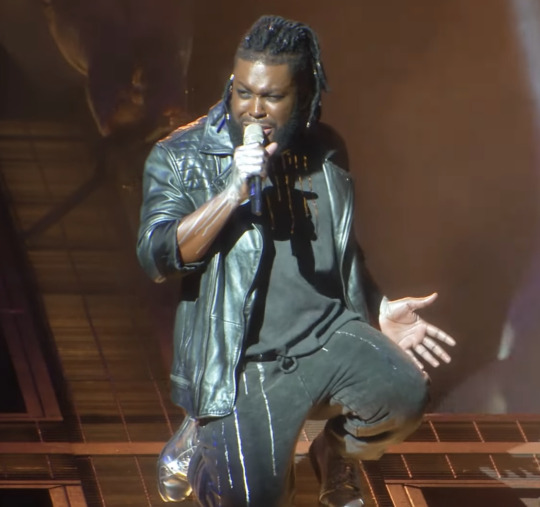



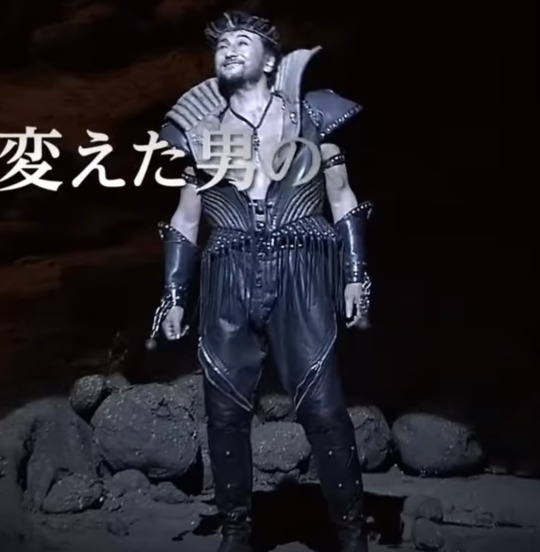

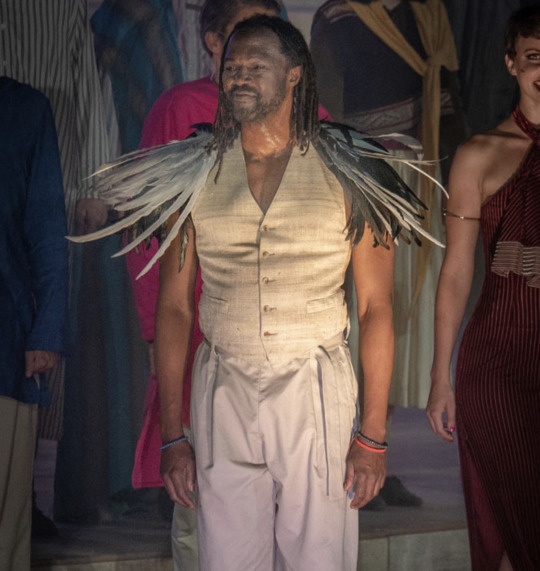
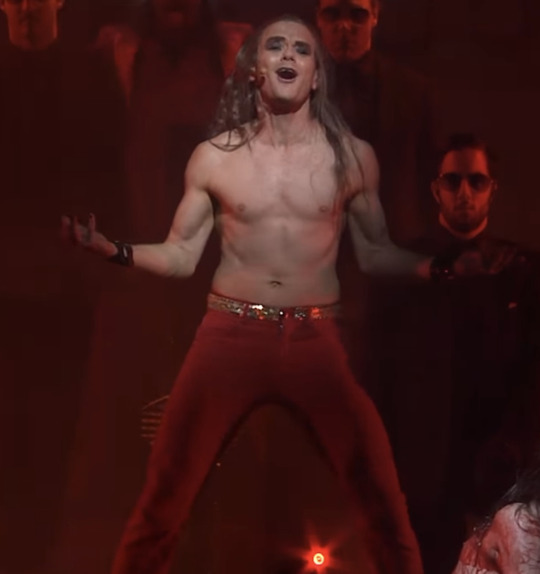
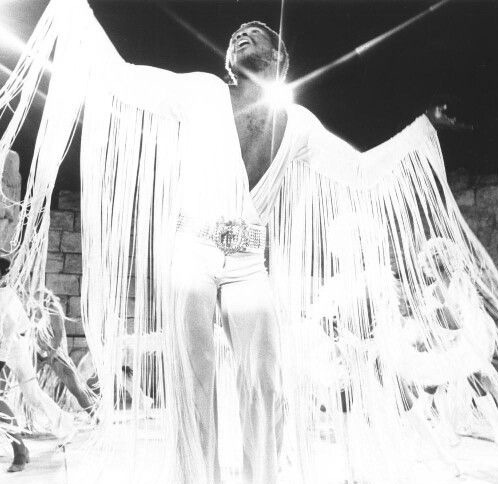
JUDAS’ SUPERSTAR COSTUME
(across multiple productions)
god bless this musical for having one bajillion different versions
#not les mis#costumes#judas iscariot#jesus christ superstar#jcs#these can go from so. So basic#To the most extra thing you’ve ever seen in your life#I have to say I prefer the versions that don’t scream in your face that he’s in hell#there was a cowboy Judas but I couldn’t for the life of me find a good picture of him .. sorry sasha di capri
104 notes
·
View notes
Text
I want to be a vampire too: rant
played 2 routes of ikemen vampire so far. I love the game, but both times I have wished that there was an option to join them as a vampire at the end.
I don't understand why becoming a vampire is posed so negatively in the game, but whenever it comes up in the routes it's coded like it's a terrible option that MC doesn't want to do.
Well, au contraire! If I had a chance to become a sexy vampire in a mansion full of other sexy vampires I would take it ... especially if the person I was in love with was also a vampire. If both are vampires doesn't that mean more time you get to be together??
TLDR I want to become a vampire at the end of my romance and I haven't had my way yet,
#ikevamp spoilers#cybird please im begging you let me be a vampire too#can you tell i have main character syndrome#but fr fr I rly dont understand MC#like you could live a whole extra century or so with your mans#and you instead want to age way faster than him and leave him alone?? how does that make sense#it just rly gets on my nerves that MC doesn't want to be a vampire#because i do#it sounds so epic#ykwim ?#the routes i played are sebastian and leonardo#both so far we dont get to vamp out#ikevamp sebastian#ikemen vampire#ikevamp#ikevamp leonardo#ikevamp le comte#ikemen vampire mc#ikevamp isaac#ikevamp napoleon#ikemen vampire theo#cybird otome#ikemen vampire x reader#ikemen vampire review#ikevamp review
111 notes
·
View notes